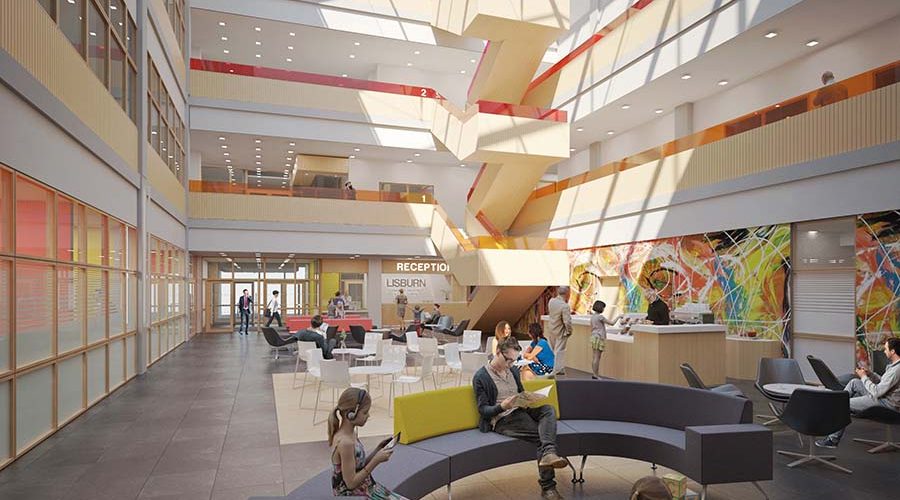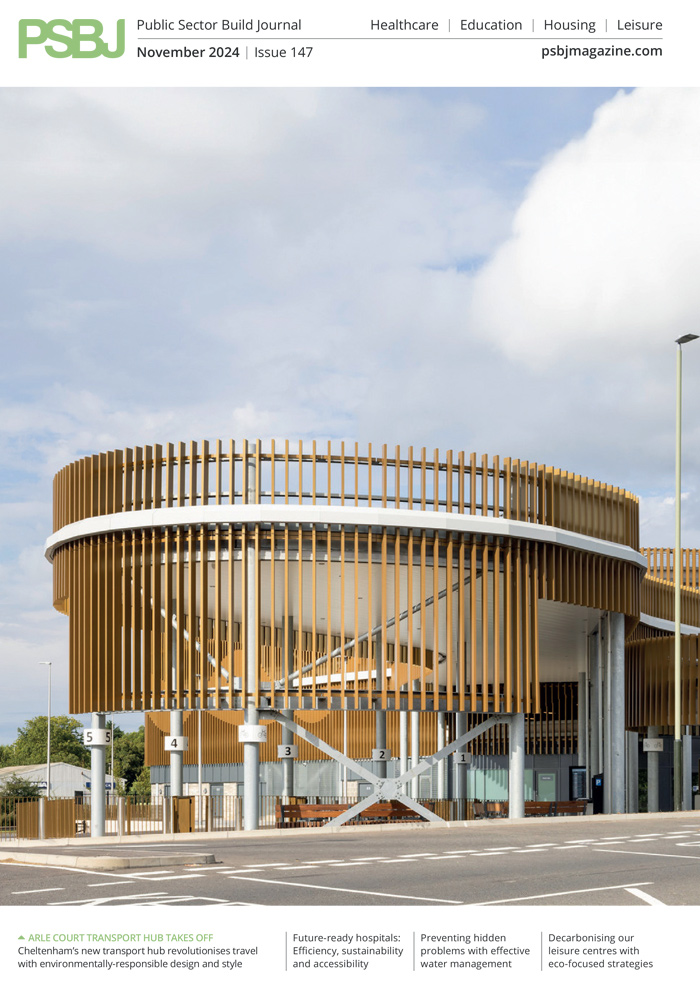More than half the adult population of the UK have received their first vaccination dose, and the NHS can now begin to consider initiatives that can offer optimum use of resources as they embark upon post-pandemic recovery. Modular construction provides many long-term benefits that can help to stabilise the outlook for the UK’s healthcare services far into the future. Kirk Taylor, Head of Development at Kajima, explores further.
Kajima
The advantages of modular construction go beyond relieving system backlogs. Modern methods of construction will enable the NHS to meet long-observed spikes in demand by offering time- and cost-efficient developments of facilities that have the added bonus of supporting global sustainability efforts, maximising service potential in a way that is flexible and responsive to national needs long into the future.
Change in focus from short to long term
COVID-19 has necessarily forced the healthcare system to focus on the immediate needs of the population. The rapid increase in coronavirus cases throughout December and January saw a huge amount of resources directed to coping with short-term demand for treatment, leaving NHS facilities operating at near-maximum capacity. In London alone, all the top 10 trusts had over 95% of beds occupied, with three at over 97%.
This has put significant strain on the health service, which is now facing a backlog of patients. For those with serious illnesses, a delay such as this could be potentially life threatening, and in June 2020 almost 2.5 million Britons had not been screened, tested or treated for cancer due to pandemic disruptions.
As cases fall and vaccination programmes increase their outreach, the NHS will inevitably turn its focus to these longer-term issues, and building solutions need to be found that will support this recovery. New spaces should be delivered that can provide optimum care with efficient use of resources, providing a more streamlined and comfortable experience for both staff and patients and offering a more secure outlook for trusts around the country.
Modular construction has several long-term benefits that can match this demand. Research from McKinsey suggests that these building methods can reduce schedules by 20 to 50% and cut construction costs by 20%. Time and cost efficiency will be key to supporting the NHS as it recovers from the impact of the pandemic, which modern methods of construction are well-placed to provide.
Long-observed pressures need long-term solutions
Even before COVID-19, the NHS was facing challenges such as seasonal spikes, and the winter of 2019 was particularly pressurised, with the highest daily rate of emergency admissions on record. Hospital operations were understandably impacted, and 2019 saw the highest number of patients waiting for at least four hours on a hospital trolley waiting for a bed.
The need for increased space and services has been accelerated by the pandemic, and modular construction can offer an effective and efficient solution, particularly whilst the outlook remains uncertain with ever-present concerns of future COVID-19 variants. Data from past winters can inform plans for any new buildings by offering insight to what facilities are most urgently needed, and the nature of offsite construction means that developments can go ahead with minimal disruption to the sites of health services that have already seen an incredibly turbulent year.
Importantly, these long-term benefits of modular construction can be put into place very quickly in comparison to traditional builds. This will provide relief not only to patients, but also to NHS staff. The recent months of almost unrelenting demand on healthcare services has only amplified the intensity of recent seasonal spikes. After their unfaltering work during the pandemic, healthcare workers deserve urgent responses that can alleviate any pressure possible, which MMC is in a prime position to provide.
Repurposing of structures
A central long-term benefit of modular construction is its inherent flexibility. Facilities can be built in blocks that have the potential to be upscaled, re-located, expanded and re-purposed as necessary, meaning that facilities can match short-term needs by being modified for many years to come.
This has long-term benefits in terms of cost, time and sustainability. The expense of disassembling and re-purposing a modular construction is much less than commissioning and building an entirely new structure, and the operation as a whole has a significantly reduced timescale in comparison to traditional developments. Furthermore, these adaptations can be made in response to immediate demand, which is particularly advantageous when coping with seasonal spikes and the threat of COVID-19 variants.
Environmental impact
Recently, a central long-term consideration for industries across all sectors has been that of environmental impact. Governments around the world are committing to net-zero futures to protect the planet, and fundamental changes need to be made in all areas of life in order to achieve this goal.
The building and construction sector, in particular, needs to adapt its processes to support ambitions of net-neutrality. In 2018, the sector accounted for 39% of energy and process-related carbon dioxide emissions, 11% of which resulted from manufacturing building materials and products such as steel, cement and glass.
The methods of modular construction offer much more control over the build process. Offsite assembly ensures that all materials are brought together with minimal disruption to local environments, both in terms of gas production and noise pollution, and the impact of transport emissions are diminished. Structures can be brought together under careful supervision in factories to ensure that high standards of build qualities are met, with the bonus of reducing waste and having readily available supplies of sustainable materials.
Improving the environmental credentials of healthcare facilities will be key to net-zero ambitions – indeed, a 2019 report found that the NHS is responsible for 5.4% of the UK’s carbon footprint. Modular construction is a sustainable initiative that offers a number of long-term benefits not only to the healthcare sector as a whole, but also to the wider ecological commitments of society.
Looking to the future
Modular construction can provide long-term solutions to the challenges that the NHS will face post-pandemic. The benefits of this method of building are centred around its flexibility and efficiency, offering sustainable developments that can react to demand. Its emphasis upon establishing facilities with a potential multiplicity of purpose means that short-term investment will ensure that healthcare providers and patients will feel the benefits for years to come.










